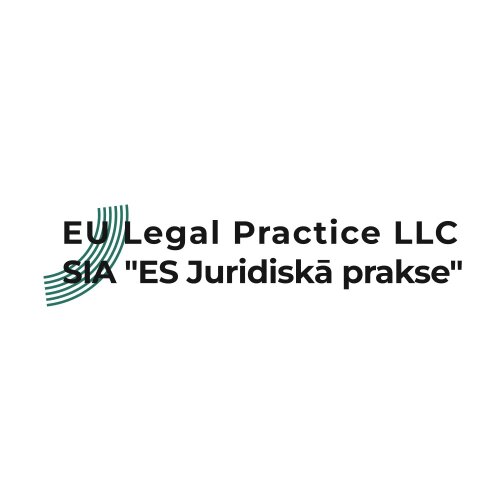Best Employment Benefits & Executive Compensation Lawyers in Latvia
Share your needs with us, get contacted by law firms.
Free. Takes 2 min.
Or refine your search by selecting a city:
List of the best lawyers in Latvia
About Employment Benefits & Executive Compensation Law in Latvia
Employment Benefits & Executive Compensation laws in Latvia are designed to regulate the relationship between employers and employees regarding various forms of compensation and benefits. These laws ensure that both parties adhere to certain standards and obligations, which cover everything from basic salary to more sophisticated forms of remuneration like stock options and bonuses. Given the evolving nature of employment landscapes, these regulations help clarify the rights and responsibilities involved in employment contracts and are particularly crucial for executives and high-level management positions.
Why You May Need a Lawyer
Individuals and businesses might seek legal assistance in Employment Benefits & Executive Compensation for various reasons. Common situations include understanding compliance with local laws when structuring executive compensation packages, resolving disputes over benefit entitlements or contractual terms, and navigating tax implications or reporting requirements of different compensation forms. Legal help ensures that all compensation structures comply with Latvian laws and that both parties' interests are properly protected.
Local Laws Overview
Latvian labor laws, including those related to Employment Benefits & Executive Compensation, are primarily governed by the Labour Law of 2002. Key aspects include:
- Basic Salary and Minimum Wage: Employers must adhere to the national minimum wage regulations and ensure timely payment of salaries.
- Overtime Compensation: Laws regulate how overtime compensation is calculated and ensure employees are fairly compensated for extra hours worked.
- Bonuses and Incentives: Contracts may stipulate conditions for bonuses and performance-related incentives, which need to be clearly defined.
- Stock Options and Equity-Based Compensation: For companies offering this form of remuneration, compliance with both securities and employment law is essential.
- Social Security Contributions: Employers must contribute to social security for employees, impacting the total cost of employee compensation packages.
- Termination and Severance Benefits: Regulations specify conditions under which severance payments are required and their calculation.
Frequently Asked Questions
1. What is the legal minimum wage in Latvia?
The national minimum wage is set annually by the government. Employers must ensure they meet or exceed this threshold.
2. How is overtime compensation calculated?
Overtime is typically compensated at a higher rate than regular hours. The specific rate should be outlined in the employment contract, in compliance with the Labour Law.
3. What are the typical components of executive compensation packages?
Common elements include base salary, annual bonuses, stock options, retirement plans, and other benefits like health insurance.
4. Can bonuses be legally withheld by an employer?
Bonuses should be clearly defined in contracts. Employers can withhold bonuses only if conditions for their payment, as stipulated in the contract, are not met.
5. What is a stock option, and how is it taxed?
A stock option gives the right to purchase shares at a predetermined price. Tax implications depend on the structure and timing of option exercise.
6. What happens to my benefits if my employment contract is terminated?
Termination procedures and entitlements, including severance pay, should be detailed in the contract and are subject to Latvian labor laws.
7. How are disputes over employment benefits resolved?
Disputes can be settled through negotiation, mediation, or legal proceedings in accordance with employment laws.
8. Are there laws governing discretionary bonuses?
Discretionary bonuses aren't guaranteed unless specified in the contract. Legal guidance can help clarify entitlements.
9. What role do social security contributions play in compensation?
Employers must make obligatory social security contributions on behalf of employees, affecting overall compensation costs.
10. How does one ensure compliance with employment compensation laws?
Regular consultation with legal experts ensures that compensation agreements align with current legislation.
Additional Resources
For further guidance, consider contacting the following:
- State Labour Inspectorate of Latvia: Offers information on employment rights and compliance.
- Latvian Bar Association: Provides a directory of experienced employment lawyers.
- Ministry of Welfare of Latvia: Offers resources on labor legislation and social policies.
Next Steps
If you need legal assistance in Employment Benefits & Executive Compensation, consider the following steps:
- Research and contact a lawyer specializing in employment law in Latvia.
- Prepare relevant documents, such as employment contracts and compensation agreements, for review.
- Schedule a consultation to discuss your specific needs and receive tailored advice.
Taking these steps will ensure that you receive informed guidance tailored to your employment situation and legal landscape in Latvia.
Lawzana helps you find the best lawyers and law firms in Latvia through a curated and pre-screened list of qualified legal professionals. Our platform offers rankings and detailed profiles of attorneys and law firms, allowing you to compare based on practice areas, including Employment Benefits & Executive Compensation, experience, and client feedback.
Each profile includes a description of the firm's areas of practice, client reviews, team members and partners, year of establishment, spoken languages, office locations, contact information, social media presence, and any published articles or resources. Most firms on our platform speak English and are experienced in both local and international legal matters.
Get a quote from top-rated law firms in Latvia — quickly, securely, and without unnecessary hassle.
Disclaimer:
The information provided on this page is for general informational purposes only and does not constitute legal advice. While we strive to ensure the accuracy and relevance of the content, legal information may change over time, and interpretations of the law can vary. You should always consult with a qualified legal professional for advice specific to your situation.
We disclaim all liability for actions taken or not taken based on the content of this page. If you believe any information is incorrect or outdated, please contact us, and we will review and update it where appropriate.
Browse employment benefits & executive compensation law firms by city in Latvia
Refine your search by selecting a city.













